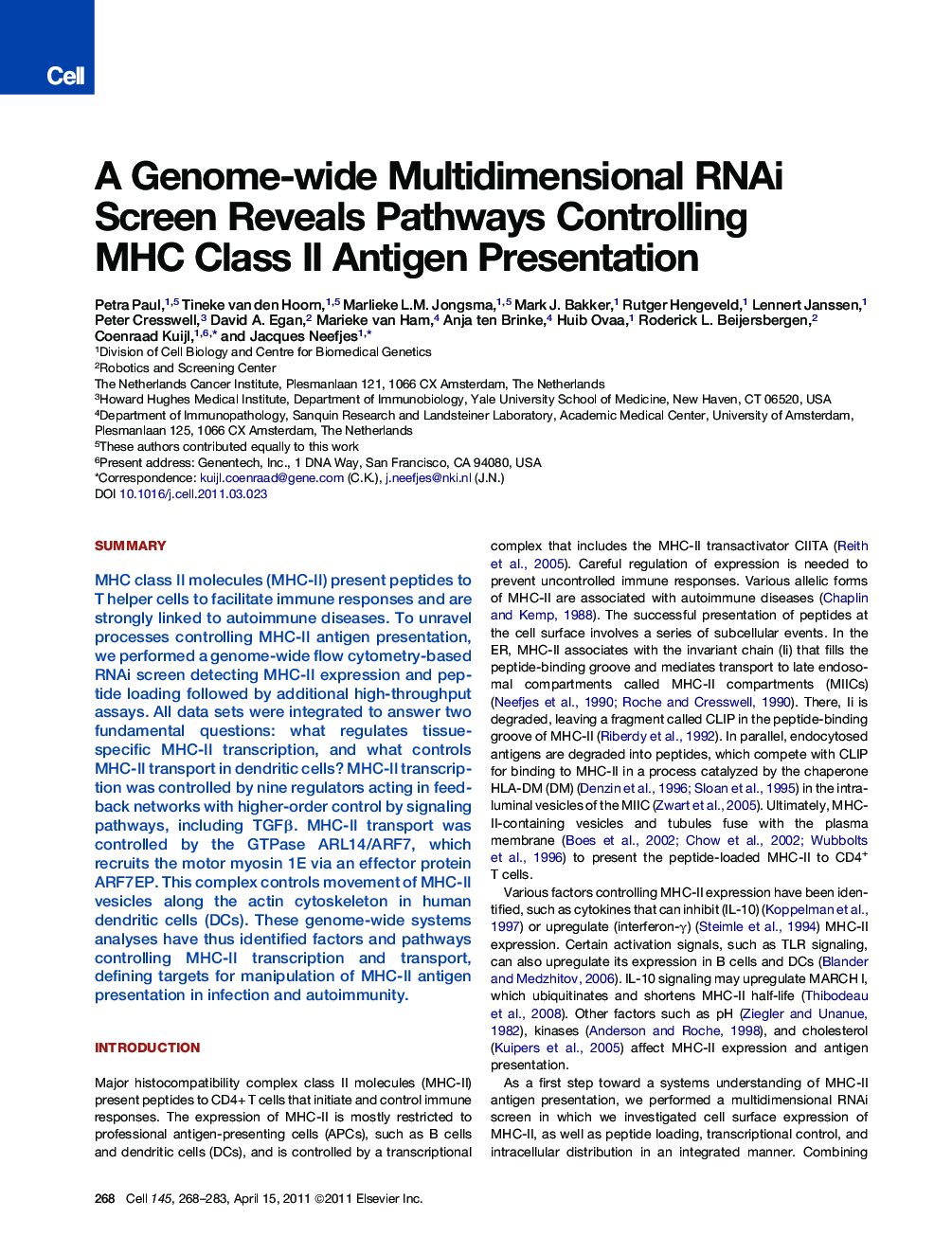| کد مقاله | کد نشریه | سال انتشار | مقاله انگلیسی | نسخه تمام متن |
|---|---|---|---|---|
| 2036462 | 1072266 | 2011 | 16 صفحه PDF | دانلود رایگان |

SummaryMHC class II molecules (MHC-II) present peptides to T helper cells to facilitate immune responses and are strongly linked to autoimmune diseases. To unravel processes controlling MHC-II antigen presentation, we performed a genome-wide flow cytometry-based RNAi screen detecting MHC-II expression and peptide loading followed by additional high-throughput assays. All data sets were integrated to answer two fundamental questions: what regulates tissue-specific MHC-II transcription, and what controls MHC-II transport in dendritic cells? MHC-II transcription was controlled by nine regulators acting in feedback networks with higher-order control by signaling pathways, including TGFβ. MHC-II transport was controlled by the GTPase ARL14/ARF7, which recruits the motor myosin 1E via an effector protein ARF7EP. This complex controls movement of MHC-II vesicles along the actin cytoskeleton in human dendritic cells (DCs). These genome-wide systems analyses have thus identified factors and pathways controlling MHC-II transcription and transport, defining targets for manipulation of MHC-II antigen presentation in infection and autoimmunity.
Graphical AbstractFigure optionsDownload high-quality image (326 K)Download as PowerPoint slideHighlights
► Genome-wide screen identifies 276 factors regulating human MHC class II function
► Twenty-one factors identified are associated with autoimmunity
► A CIITA transcriptional feedback loop controlled by TGFβ and RMND5B is defined
► Analysis reveals pathways for MHC class II trafficking and transport in dendritic cells
Journal: - Volume 145, Issue 2, 15 April 2011, Pages 268–283